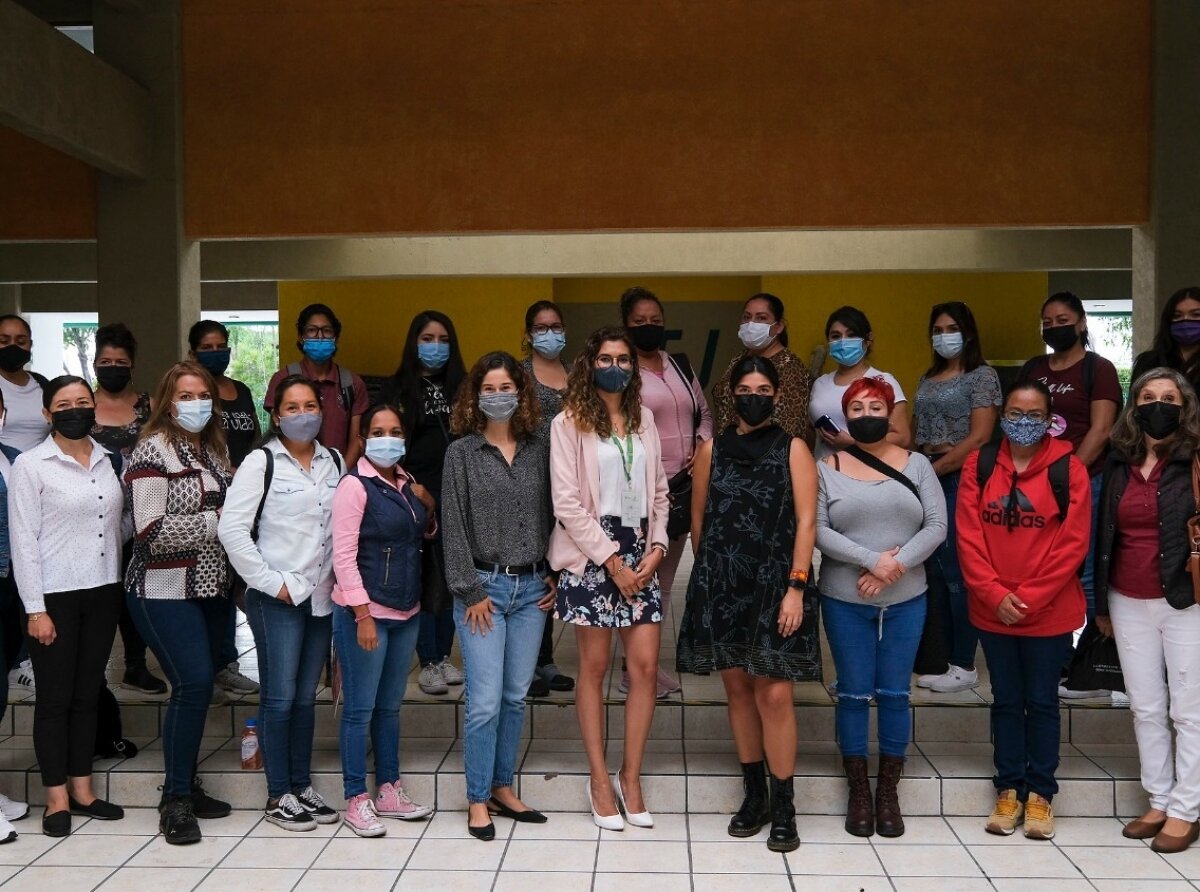This program aims to improve the quality of public transport service and to include more women in the formal labor sector.
Yesterday the training began so that 55 women could be employed as drivers of public transport, with scholarships to study for the certification, and thus obtain the C2 license (which is required to drive public transport). They also receive management, financial support during training, and payment for their license and badge, as well as a connection with a job board. The above, as part of the Women Conductors program, was promoted by the Territory Management Coordination and the Secretary of Transportation.
The general strategic coordinator of Territory Management, Patricia Martínez Barba, welcomed the training and invited the beneficiaries to give their best and thus be part of the transformation of public transport that is being promoted in Jalisco. She recalled that a fundamental part of the improvement goes through the good service, the friendly attitude, and the safe driving of those who operate the transport units.
The objective of the program is to integrate more women into the formal labor sector and the public transport service, with training that is not only focused on the ability to drive vehicles but also to work on customer service with good treatment and attitude towards clients.
The 120-hour diploma course, which will take place over 6 weeks with 40 hours of theoretical classes and 80 hours of practical classes, adds to the recently modified 4’th Article of the Mexican Constitution, which establishes that “everyone has the right to mobility in conditions of road safety, accessibility, efficiency, sustainability, quality, inclusion and equality ;” elements that are developed in the training.
It also addresses issues such as quality of service, safe driving, health, and driving as a profession. For this new call, the manuals were updated, which include the teaching of the Violence Prevention Protocols developed by the Secretary Of Substantive Equality between Women and Men (SSEMH). For this first stage, the budget was 511 thousand pesos.
The program is supported by the international organization Women in Motion and the Transport Gender Lab, who will monitor and evaluate the implementation.
For its execution, it has the collaboration of the Technological University of Jalisco, a public institution with technical strength and experience in the training of drivers of different kinds, which will be under the supervision of the General Directorate of Road Safety of the Ministry of Transportation, who will monitor and validate the evaluation processes of the participants.
Likewise, the Urban Electric Train System (UETS) participates in the induction of the internal operating processes of the units in charge of the agency, so that the conductors complete the training process and subsequent licensing process.
The 55 women who participate in the diploma are looking for a formal, secure and stable job since most of their families depend on their income. The average age of the participants is 38, the youngest is 25 and the oldest is 57. Most are unemployed and others are dedicated to the home. For them, the Government of Jalisco must open these opportunities to train and become visible to occupy these spaces that are traditionally occupied by men.
At the beginning of the diploma, the director of Management and Monitoring of Territory Management, Valeria Huérfano Lezama; and Rocío Espinoza Morquecho, Director of Research and Road Culture of the Ministry of Transportation.
To know more
- 55 women are trained and will be linked to a job bank.
- At UETS, 26 women operate on the three lines of Mi Tren.
- In addition, 67 women are operators in Sitren and Mi Transporte Eléctrico.
- The budget for 2021 is 511 thousand pesos.
- This program was born in 2017, together with the Inter-American Development Bank (IDB), and although it obtained good results, it had not been followed up.

